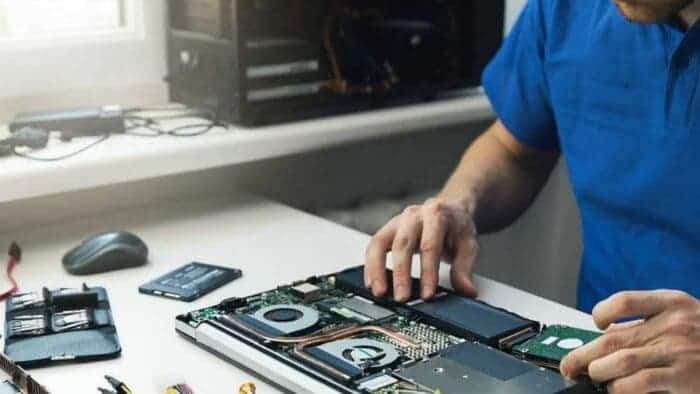Luca Rossi, Lenovo’s senior vice president and president of the smart device group, delivered a speech at the 2023 Canalys EMEA Forum. He made some statements during his speech which caught the attention of listeners. According to Rossi, by 2050, the company will achieve a net-zero emission policy. He also said that by 2025, 80% of its devices will be repairable.

The importance of repairability
Mr Rossi said that more than 80% of our equipment will be user-serviceable. He also claims that the company will achieve this through improved serviceability design.
The issue of electronic waste is a growing concern worldwide. According to the Global E-waste Monitor 2020, the world generated 53.6 million metric tons of e-waste in 2019. This number is expected to reach 74.7 million metric tons by 2030. E-waste is not only harmful to the environment, but it also poses health risks to humans and animals. This is due to the toxic chemicals it contains.
One way to reduce e-waste is to make electronic devices more repairable. When devices are designed to be easily repairable, they can be fixed and reused instead of being discarded. This not only reduces the amount of e-waste but also saves resources and energy that would have been used to manufacture new devices.

Lenovo’s commitment to repairability
Lenovo’s commitment to making 80% of its devices repairable by 2025 is a big step towards reducing e-waste. The company has already made progress in this area, with some of its products receiving high scores in iFixit’s repairability ratings. For example, the Lenovo ThinkPad X1 Carbon received a score of 10 out of 10, indicating that it is very easy to repair.
To achieve its goal of 80% repairability, Lenovo plans to use more modular designs and standard parts in its products. This will make it easier for users to replace faulty parts without having to replace the entire device. Lenovo also plans to provide repair guides and spare parts to users. This will make it easier for them to repair their devices themselves.
Final Words
Lenovo’s commitment to making 80% of its devices repairable by 2025 is a significant step towards reducing e-waste and promoting sustainability in the tech industry. By making devices more repairable, Lenovo is not only reducing the amount of e-waste but also saving resources and energy. This is a positive trend that we hope to see more of in the future, as the world works towards a more sustainable and circular economy.





